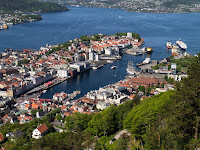Relax, I keep telling
myself. Relax.
Ann and I enjoy our health and financial
security, our kids are healthy and productive, our grandkids have gotten/are
getting good educations. It’s hard to see how this new Republican era can
directly and imminently hurt us. So buck up and swallow the
disappointment. As Jacques, my Libertarian friend, counsels “get over
it!”
But . . . with each
passing day and tweet, with each appointment of a federal dismantler, with each
episode of power lust, my anxiety ratchets up.
The Senate will prove
to have been the key pivot point for the next few years. I devoted all my political
contributions to Senate races but the DSCC really let us down. And looking forward, in the election of
‘18 there will be on the ballot three times as many Senate seats held by
Democrats as those held by Republicans. And in ’20, we may not face Trump, if
he gets bored with being the world’s most powerful person, but Pence or Cruz or
that used car salesman, Rubio. And expect candidates -- House, Senate and Executive
-- to take a lesson from Trump and Sanders and become populist panderers if not
outright demagogues. In the meantime, God knows what we will face on
the Supreme Court. We're in for a long dry spell at the
Federal level. It’s not a pretty picture. We cannot afford to relax.
It’s tempting to
renounce democracy and adopt the Founders’ skepticism of the mass. But no, I have faith that wisdom and
judgment reside among us regardless of our education or social station. Our system can and will work given
time. So
how do we buy that time and swing the pendulum back toward a democratic
republic’s ability to forge compromise, to balance competing interests and to solve
problems inclusively?
First, Democrats
should not reinforce polarization. Let’s not adopt a McConnell negativity,
opposing anything coming out of the executive branch. Instead, Democrats must clearly embrace
and stand for something that works for those we lost to Trump, those who were
unheard, those who are fearful and fed up, even if a program has a Trumpian
stamp on it. He says he wants to spend on transportation and
communication; he wants to lower drug prices; he promises national competition
among health insurers. These are fertile fields for compromise and
collaboration – for making deals with the Deal Master.
In the meantime,
Democrats must adopt a clear-cut, simple-to-grasp mission, a bumper-sticker
identity (take a lesson from “Make America Great Again.”) At all levels of
government, local, county, state and federal, all democrats should stand for
one, simple, over-arching idea.
And wouldn’t you know
– I have a suggestion: Removing Barriers.
It ain’t original:
Bill Clinton used it on occasion in the ‘90’s; Hillary talked it last April but
then, unaccountably, dropped it. I thought at the time, “Hey, what a
powerful, flexible and memorable a positioning for Democrats. What a great slogan; what a bumper
sticker; what a lawn sign logo.” This is what we should be about –
locally, at state level, nationally: removing barriers to education for
preschoolers and high school grads; removing barriers to equity; removing
barriers to a living wage and family-wage jobs; removing barriers to health
access.
Removing barriers is
not welfare but leveling the playing field and smoothing obstacles to an
individual’s fulfillment of their potential. Removing barriers is not a zero-sum
game; you don’t need to deprive someone to remove someone else’s barrier (except through equitable, progressive
taxation.)
On whom should we
focus? Forget
the fifty-state focus now so being talked up among aspirants to the DNC Chair. Rather, let’s adopt a three-generation
focus – the boomers and retirees, many of whom turned to Trump for answers;
their middle age children locked in a stagnant middle class; and their
grand-children. Everyone wants to see their children and grand-children
thrive and prosper. Remove barriers that stand in the way of each
generation. Do that and the fifty states
will sort themselves out.
Where should we
focus? At the
state level. These Republican ideologues want to weaken Federalism. OK. Let’s take the force of their blow
and turn it to our use, in the way my grandson does in his Tai Kwan Do. Let’s remove barriers at the state
level through a consortium of states, and the feds will have to follow. Carbon pricing; climate science
support; on-line public education collaborations across state lines; pooled
state health insurance programs. With assertive, pragmatic collaboration
of states, we can create a new federalism centered outside the Beltway, outside
Montgomery County MD, Arlington County, VA and the District of Columbia. Listen to what Jerry Brown has to say
about state responsibility and opportunity (my thanks to friend Brian who sent
me this link,) Here
Brown is welcoming this year’s annual meeting of climatologist and earth
scientists, and he is fighting-mad: hear what progressive resistance sounds
like. (The sound track temporarily fades
out at one point; just wait it out for 20 seconds or so.)
Two other
suggestions. Friend Frank always refer
to “Republican President Trump.” And use
humor; nothing so demonstrates his malignant narcissism (from a second friend
Frank.) Like a picador skewering a bull, madden him with humor. The man can’t take a joke. Where are our puppeteers when we need them? (One of the first things the Nazis did in
1934 was to clamp down on cabarets and ban street puppet shows.)
So, those are my
prescriptions for the long haul restoration of the Democratic Party: Focus
on Removing
Barriers, for Three Generations, through progressive State Consortia. And in the meantime, skewer with humor Republican
President Trump as often as we can.

























